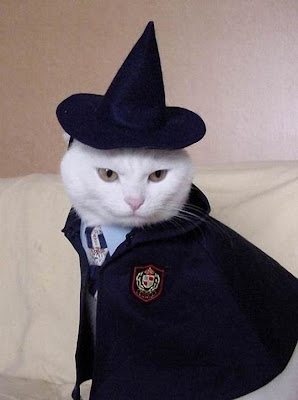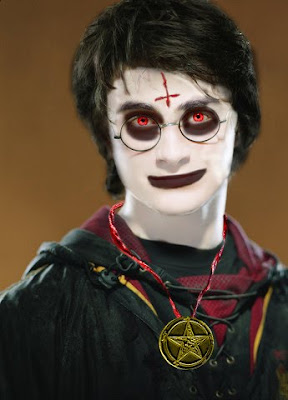

Speaking out about religious folks banning books, Judy Blume, author of Are you there God?It's me, Margaret said:
"What began with the religious right has spread to the politically correct. (Remember the uproar in Brooklyn last year when a teacher was criticized for reading a book entitled "Nappy Hair" to her class?) And now the gate is open so wide that some parents believe they have the right to demand immediate removal of any book for any reason from school or classroom libraries. The list of gifted teachers and librarians who find their jobs in jeopardy for defending their students' right to read, to imagine, to question, grows every year."
Another quote comes from Kimberly L. Keith who talks about how Harry Potter is good for children because it is basically a modern fairy tale:
"A fairy tale, or great children's book, guides the child's unconscious in a structured way to resolve painful feelings. This frees the child to cope on a conscious level without being overwhelmed by underlying feelings of anxiety and alienation. The Harry Potter books have all the elements of a classic fairy tale, but they speak to modern children in a way that classic fairy tales probably do not anymore."
On the other side of the coin we have this quote from Ray Novosel from www.jesus-is-savior.com:
"But as wild as children seem to be about Harry, no one is happier about the phenomenon than the old-school Satanists, who were struggling to recruit new members prior to the publication of the first Potter book in 1997. “Harry in an absolute godsend to our cause,” said High Priest “Egan” of the First Church of Satan in Salem, MA. “An organization like ours thrives on new blood - no pun intended - and we've had more applicants than we can handle lately." In 1995, it was estimated that some 100,000 Americans, mostly adults, were involved in devil-worship of some sort. Today, more than 14 million children alone belong to the Church of Satan, thanks largely to the unassuming boy wizard from 4 Privet Drive. Yes, the numbers ARE horrific, but the total sales of Harry Potter books, plus the natural hand-me-down factor where many people read a book that has already been purchased, easily equals or exceeds this staggering figure of 14 million."
Here's a lovely video put together by the folks over at everythingisterrible.com you should watch that will really drive home the point of view that Harry Potter is taking people away from good and placing them on the path of evil.
So this brings us to the question of who is right? Are religious folk correct in worrying about what our children (and everyone else's children) read and see? Are these kids really on the path to destruction:

Or are religious people overreacting? Is Harry Potter just a kids book with an interesting story, no different then the hundreds of fictional children's books that have come before it?



 id Elizabeth Gilbert
id Elizabeth Gilbert 
